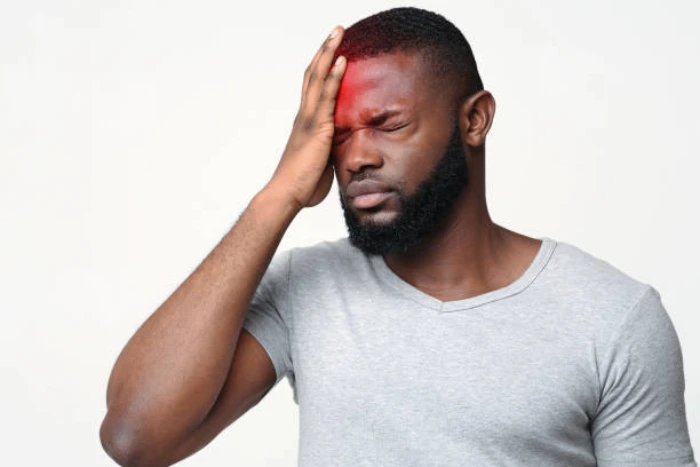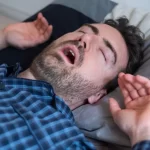Have you ever had a concussion? If yes, did you refrain from sleeping after it? If you did, it’s quite alright because most people did too. Now the question arises, is it bad to sleep with a concussion?
Medical experts once advised that sleeping after a concussion could lead to severe consequences, such as falling into a coma or even death. But that theory was debunked.
Current medical experts agree that sleeping after a concussion is completely safe if the person shows no signs of a more severe concussion or brain injury.
But getting the right rest is critical to recovery, so you must know how to sleep with one safely and properly. This article will give you all the tips on achieving just that. From what position works best for recovering from a concussion to special precautions while sleeping.
How It Is Safe To Sleep With A Concussion?
Sustaining a concussion can be a scary and unsettling experience. It can impact your ability to carry out routine activities, including getting a good night’s sleep. Sleeping with a concussion might seem daunting, but there are tips you can take to ensure that you do so safely.
01: Follow Your Doctor’s Instructions
Sustaining a concussion can be a scary and overwhelming experience, and it’s important to follow your doctor’s specific instructions to ensure a successful recovery. One particular instruction you may receive is to avoid sleeping in certain positions, such as lying on your back or stomach.
While this may seem minor, it’s critical to heed these recommendations as they can make all the difference in your recovery process. Certain positions can inadvertently add pressure to your head and neck, exacerbating your symptoms and delaying your healing.
Instead, your doctor may advise sleeping with your head elevated to improve blood flow and reduce swelling. It may feel like a small adjustment, but following these instructions closely can ultimately lead to a much smoother and quicker recovery.
02: Avoid Activities That Can Disrupt Sleep
Avoiding activities that disrupt your sleep is essential to ensure a good night’s rest. Consuming caffeine or alcohol close to bedtime can interfere with the body’s natural sleep cycle and make it difficult to fall asleep.
You should also avoid using electronic devices before bed, as the blue light they emit can inhibit melatonin production, a hormone promoting sleep. Also, it’s best to avoid engaging in activities that require intense focus, such as reading or doing work, right before bedtime.
Avoiding these activities can help your brain relax and prepare for a restful night’s sleep.
03: Create a Sleep-Conducive Environment
Creating a conducive sleep environment is crucial for individuals with a concussion. It’s essential to keep your bedroom dark, quiet, and cool. A dark room can help promote melatonin production, while a quiet environment can prevent external distractions from disturbing your sleep.
Similarly, a cool temperature can help your body relax and induce sleep. If external noise is an issue, consider using earplugs or a white noise machine to block out unwanted sound. These simple measures can significantly improve your sleep quality.
04: Consider a Sleep Aid
Restful sleep is an essential part of maintaining our overall health and well-being. Unfortunately, many people experience difficulty falling or staying asleep, which can negatively impact their quality of life.
In some cases, doctors may recommend sleep aids to help promote better rest at night. Whether you’re prescribed medication or opt for an over-the-counter sleep aid, it’s crucial to follow your doctor’s instructions to ensure you take the proper dosage and avoid any potentially harmful side effects.
While sleep aids can be helpful tools for managing post-concussive sleep disturbances or other sleep-related conditions, it’s vital to be cautious and use them only under the guidance of a medical professional.
05: Use Pillows to Support Your Head
After sustaining a concussion, one of the best ways to promote healing is to sleep with your head elevated. But it’s not as simple as just piling a few pillows under your head and calling it a night.
To best support your recovery, choosing firm pillows that will keep your head and neck stable throughout the night is important. Depending on the severity of your concussion, you may need to aim for an elevation between 30 to 45 degrees.
Avoid sleeping on your stomach, as it can strain your neck and exacerbate your symptoms. Elevating your head while you sleep properly will give your brain the best chance to heal and recover.
06: Monitor Your Symptoms
With symptoms like headaches, dizziness, confusion and nausea, concussions can be scary. But if monitored closely with journaling of any changes or sudden worsening of your headache, you may spot danger signs quicker than expected.
Recognizing these signs is important so medical attention can be sought out right away for the possible more severe injuries that require a prompt response.
07: Avoid Physical Activity Before Bedtime
Physical activity can increase your heart rate and make it harder to fall asleep, so avoiding any strenuous activities before bedtime is essential if you have a concussion. Your doctor will advise you on when it’s safe to resume physical activities.
Generally, avoiding all activities requiring physical exertion for a week or two after the concussion is best.
Instead, engage in calming activities before bedtime, such as reading or listening to calm music, to help you relax and prepare for sleep. A regular sleep routine, including a fixed bedtime and wake-up time, can also help prevent insomnia and improve your sleep quality.
Rest and Recovery: The Key to Overcoming a Head Injury
The aftermath of a head injury can be daunting, but taking the right steps to recovery will restore their health quickly. Surprisingly enough, sleeping with a concussion is recommended. It allows the brain to heal and recover while temporarily setting aside any worries or concerns.
But it’s crucial to pay attention to any signs and symptoms of a concussion and seek medical help when necessary. Avoiding activities that may cause further head injuries, such as contact sports or high-impact exercises, is vital.
Rest and adequate sleep can help alleviate symptoms such as headaches, dizziness, and fatigue, promoting faster recovery.
By observing these precautions and adhering to medical advice, individuals can significantly minimize the impact of a concussion and get back to their normal routine as soon as possible.




